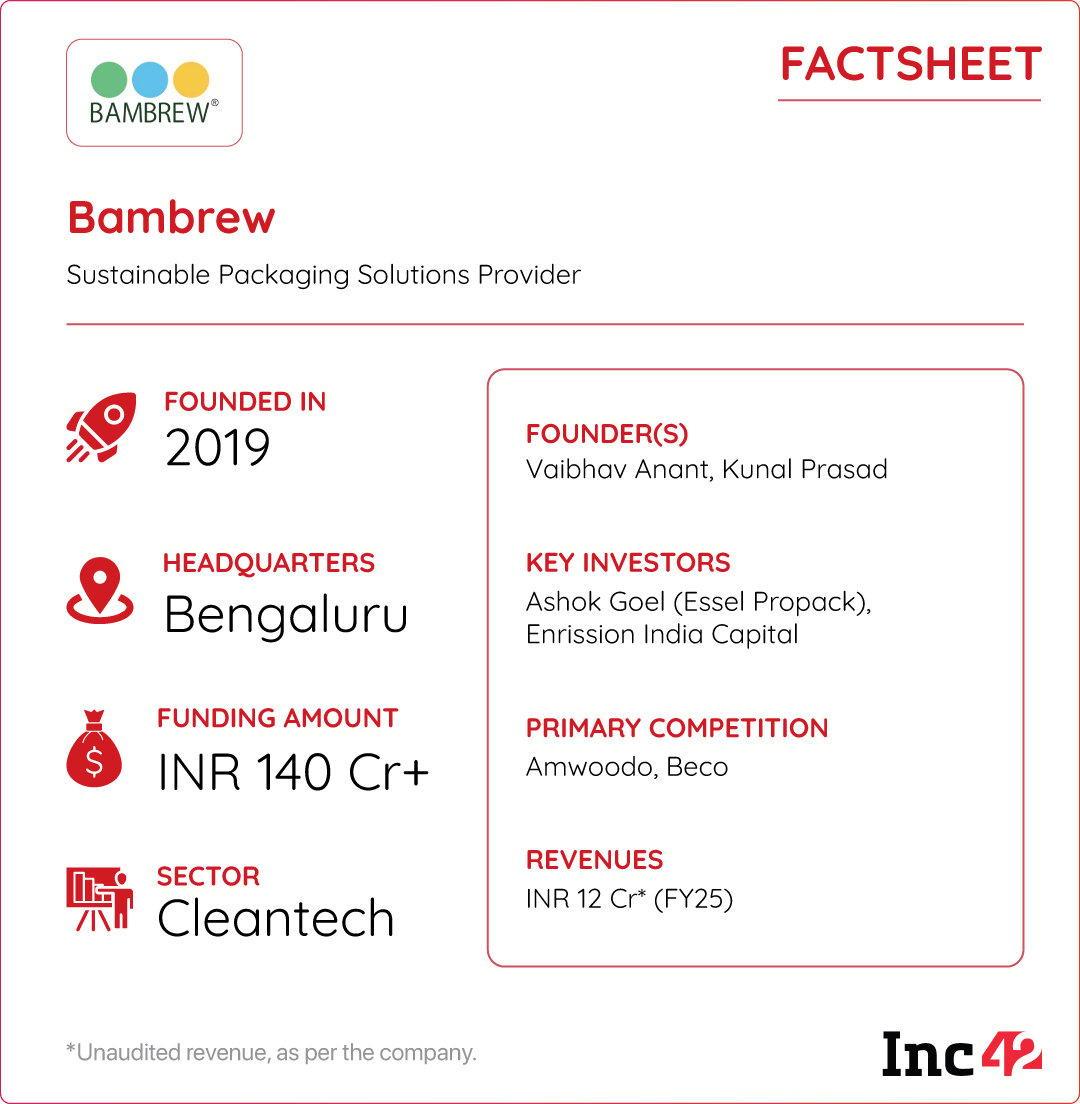Synonymous with at-home services for a decade now, Urban Company is all set for its next big reveal. Having started with its line of water purifiers and smart door locks in 2023, the IPO-bound unicorn is now expanding its portfolio of white goods. So, what’s the plan?
Cashing In On The Urban ‘Cool’: The hyperlocal services platform is readying its line of air conditioners, which will hit the shelves by the summer of 2026. With this, the company aims to capitalise on the lucrative home appliance market and leverage its extensive service network to push its products.
Why Expand Now? The move has come at a time when the company’s sales of water purifiers and door locks accounted for 27% of the company’s total top line in FY25, zooming 72% YoY to INR 304.2 Cr. In light of this, bolstering the product category is a natural progression. Moreover, electronic appliances boast higher average ticket prices and healthier gross margins, which will enable the startup to turn profitable quickly in the segment.
Milking The Gig Network: Beyond its B2C pitch, the company sees a goldmine in its vast network of over 48,000 service professionals. It is selling a wide range of tools and equipment to its gig workers, bringing more revenue for the company. However, many rue that the hyperlocal services platform forces gig workers to buy its offerings, despite cheaper alternatives available in the market.
Tricky Path Ahead: Sustaining in this market won’t be easy for Urban Company, as it has picked a fight with the likes of Voltas, Carrier, Blue Star, and Godrej, among others, in the very game they excel at. On the other hand, the services startup lacks the experience and expertise that these behemoths have mastered over the years.
Nevertheless, it is a transition worth studying as Urban Company suits up for D-Street. For now, let’s decode Urban Company’s product-led makeover.
From The Editor’s DeskSwiggy Pulls The Plug On Minis: The listed foodtech major will shut its SaaS-based ecommerce enablement platform by August 10 due to low customer footfall. Minis helped local homegrown brands establish their own mini-storefront on the Swiggy main page.
Decoding Curefoods’ DRHP: The cloud kitchen startup has filed its DRHP with SEBI for an INR 800 Cr IPO. As Curefoods prepares for its stock exchange debut, here’s a deep dive into the shareholding pattern of the Bengaluru-based company.
New CFO At Pine Labs: Ahead of its potential public listing, the fintech major has roped in ex-Avendus Capital executive Sameer Kamath as its new chief financial officer. The fintech major filed its DRHP last week to raise INR 2,600 Cr via fresh issue of shares.
Zerodha Undeterred By Jio: The broking giant’s CEO Nithin Kamath has said that Jio BlackRock’s entry into the stock broking space does not pose serious challenges to the firm. Last week, the joint venture received the nod from SEBI to operate as a brokerage firm.
Nykaa’s $150 Mn Block Deal: The listed beauty ecommerce major’s early investor, Harindarpal Singh Banga, is looking to sell a 2.1% stake in the company in an INR 1,198 Cr block deal. Banga held 4.97% stakes in the company at the end of March 2025.
Zoho Bets on Robotics Again: The SaaS giant has acquired Asimov Robotics in an undisclosed deal to expand its R&D capabilities in the robotics space. This is Zoho’s second investment in the space as it earlier acquired stakes worth INR 20 Cr in Genrobotics.
Foxconn Recalls Chinese Staff: The Apple vendor has recalled over 300 Chinese engineers and technicians from its India production facilities. The withdrawal is said to have begun about two months ago, mainly leaving support staff from Taiwan in India.
CIMware Nets $2.3 Mn: The data centre infrastructure provider has raised the capital in a Pre-Series A round from Transition VC. CIMware is developing computer-integrated manufacturing units, which provide an IT framework for computing, storage and networking.
Inc42 Startup Spotlight How Bambrew Is Powering India’s Sustainable Packaging GoalsThe world’s third-largest consumer of single-use plastics, India generates 5.5 tonnes of plastic waste annually. Realising that these plastics harmed the environment, Vaibhav Anant and Kunal Prasad launched Bambrew in 2019.
Powering Sustainable Packaging: The Bengaluru-based material manufacturing startup utilises bamboo to manufacture sustainable packaging solutions for enterprises. It also supplies finished products like mailer bags, carry bags, trays, containers, paper tapes made from bamboo and other plastic-free materials.
Unique Proposition: Unlike other players in the industry, which only use bamboo as their base raw material, Bambrew produces finished products with other plant-based fibres as well. This gives them the ability to produce at scale in India’s $9.7 Bn sustainable packaging market.
Making The Moolah: Bambrew, which sells to major ecommerce players like Myntra, Flipkart and Amazon, has a manufacturing facility in Bengaluru that can support a monthly business of up to INR 15 Cr.
With an eye on bringing manufacturing and R&D processes in-house and an ambitious goal of turning Bambrew into a $5 Bn brand over the next five years, can Bambrew help India become a plastic-free nation?

The post Inside Urban Company’s Product Push, Swiggy Shuts Minis & More appeared first on Inc42 Media.
You may also like

Rebels in Republican; Trump on edge- When will US president sign his 'Big Beautiful Bill'?

UK police force probing 1,000+ grooming gang suspects after decades of failure - watchdog

Santander responds to fears of branch closures and lower savings rates with TSB takeover

Restart your Chrome browser immediately - important alert for all UK web user

Arsenal could be £145m away from handing Liverpool and Man City huge Premier League shock







